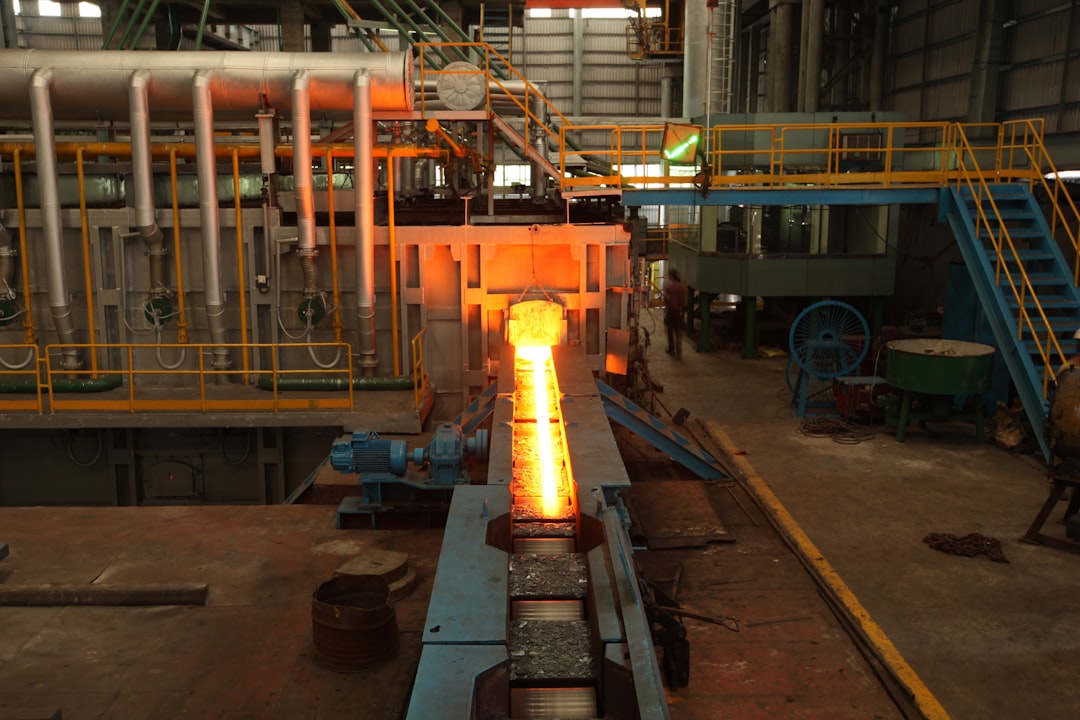No products in the cart.
Forging Ahead: The Role of AI in Steel Manufacturing Skills
AI is revolutionizing steel manufacturing, demanding new skills from workers. Explore the evolving landscape of heavy industry.
In the heart of steel country, where the clang of metal and the roar of furnaces once defined the rhythm of life, a quieter revolution is taking place. Artificial intelligence is not merely a tool; it’s becoming a co-pilot in the steel production process, steering the industry toward unprecedented safety and efficiency. This shift demands a new breed of worker—one equipped with skills that resonate with the digital era.
Historically, steelmaking has been labor-intensive, requiring workers to endure the heat and toil of production lines. Today, however, AI-driven robotics and predictive analytics are fundamentally transforming these environments. Workers are not just operating machines; they are learning to collaborate with them. This evolution raises a pivotal question: what skills will the future steelworker need in this AI-enhanced landscape?

As the World Economic Forum highlights, about 85 million jobs may be displaced by a shift in labor between humans and machines by 2025, yet 97 million new roles could emerge that are more adapted to the new division of labor between humans, machines, and algorithms[1]. In steel manufacturing, the integration of AI is already reshaping roles, from machine operators to safety inspectors, each requiring a new set of tools and knowledge.
AI technologies are being utilized to monitor equipment health in real-time, enabling predictive maintenance that can prevent costly downtimes. For instance, sensors can detect anomalies in machinery long before they lead to failure, ensuring that problems are addressed proactively. This shift not only enhances productivity but also significantly improves workplace safety, as fewer workers are exposed to hazardous conditions caused by malfunctioning machinery.
Workers must be adept at navigating complex software, understanding machine learning algorithms, and even contributing to the design of AI systems.
As companies like ArcelorMittal and Tata Steel invest heavily in AI applications, they are seeking workers who can interpret data, manage AI systems, and harness analytics to optimize production processes. Traditional roles are evolving, and so are the required skill sets. The need for basic technological literacy, once a luxury, is now a necessity. Workers must be adept at navigating complex software, understanding machine learning algorithms, and even contributing to the design of AI systems.
Moreover, the emotional intelligence of workers is being put to the test. While machines manage data, human insight remains irreplaceable. The ability to communicate effectively, solve problems creatively, and work collaboratively with both humans and machines is becoming just as critical as technical skills. As David M. W. Anderson, a leading researcher in industrial AI, notes, “The future of work is not about machines replacing humans; it’s about humans and machines working together in harmony.”[2]
Training programs tailored to these emerging competencies are being rolled out across the industry. Initiatives like the Steel Skills Initiative in the U.S. aim to bridge the skills gap by offering apprenticeships and training in AI and robotics specifically tailored to steel manufacturing. These programs are designed not only to upskill current workers but also to attract new talent eager to embrace this technological shift.
However, this transition is not without its challenges. The pace of change can be overwhelming, especially for older workers who may feel left behind. Many in the workforce have spent decades mastering traditional techniques, and the sudden need to adapt to high-tech environments can be daunting. Employers must foster an inclusive culture that values continuous learning and provides support for workers at all stages of their careers.
On a global scale, the implications of AI in steel manufacturing extend beyond individual companies. Countries heavily reliant on steel production, such as China and India, are witnessing a competitive shift. As these nations invest in AI technologies, they are not just enhancing their industries but also redefining global supply chains. Emerging markets are leveraging AI to improve efficiency and reduce costs, posing a challenge to established players in the steel industry. The world is watching closely as these shifts unfold, understanding that the stakes are high in the race for technological supremacy.
Employers must foster an inclusive culture that values continuous learning and provides support for workers at all stages of their careers.
Looking ahead, the future of steel manufacturing will likely see a hybrid workforce—one that consists of both skilled human workers and AI systems working in tandem. The question remains: how can we ensure that this transition is equitable and inclusive? As new roles emerge, there is an urgent need for policies that support workforce development and ensure that all workers have access to the training they need to thrive in this new landscape.
In the end, the fusion of AI and steel manufacturing is not just about machines; it’s about people. It’s about their resilience, their adaptability, and their ability to forge ahead in a world that is constantly changing. As we stand at this pivotal crossroads, the future belongs to those who are willing to embrace change, invest in their skills, and collaborate with technology to create a better, safer, and more efficient steel industry.











